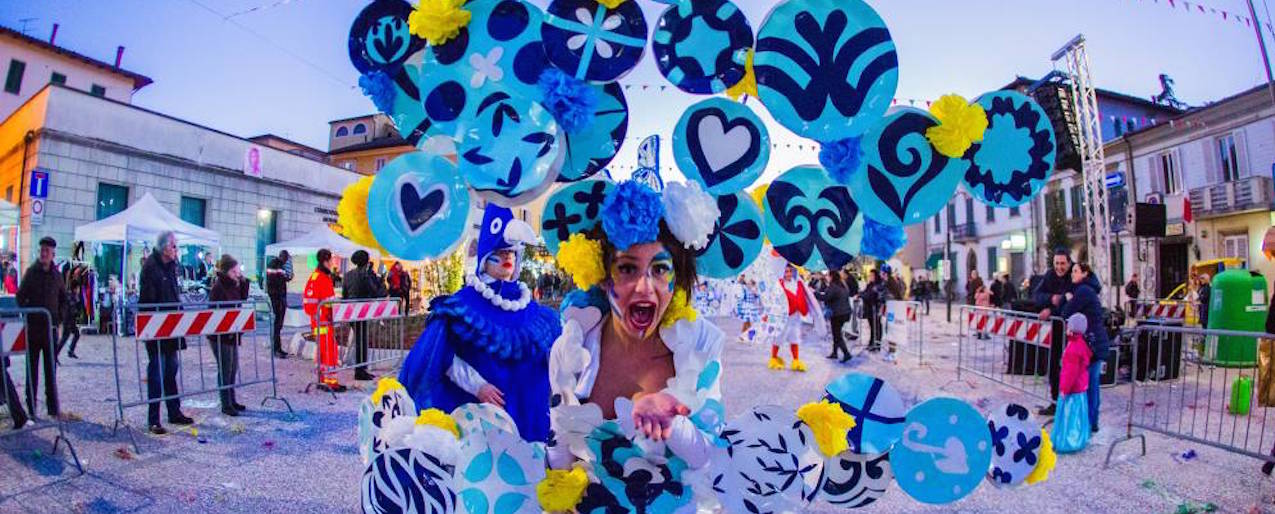Allegories are symbolical representations of a concept. And Carnival, once called carnasciale (carne-lasciare, literally “avoiding meat”) in Tuscany, possibly deriving from Latin carnem levare (also “avoiding meat”) is a quintessentially symbolic event with the masks, the allegorical floats mocking the establishment or some personality, or underlining human injustice, or even celebrating, at times rather rudely, all pleasures of life, exorcise death, torments and passions.
This assortment of different impulses, all sharing a same desecrating and nihilist outlook on reality and its values, makes Carnival an occasion for people to indulge in wild celebrations on Thursday and Mardi Gras, the last Thursday and Tuesday before Lent, that for Catholics marks the beginning of forty days of fasting (no meat) and penitence before Easter. So Carnival is a part sacred part mundane celebration, symbolically representing change, death, regeneration and rebirth and that, despite its religion-related connotation is rooted in a world before Christianity, linked to the ancient Greek Dionysian rituals that were eventually incorporated into the Roman culture in the form of Saturnalia. Carnival is a highly symbolical celebration that has lasted for over two millennia, translating different meanings but always staying true to its original spirit.
itinerary
Carnivals in Terre di Pisa

Sights
As in any other part of Italy, the Terre di Pisa region organizes countless Carnival events.
Here we have listed the major initiatives inviting you to participate in at least one of the events checking into their unique festive, playful and welcoming spirit enjoying an authentic and liberating experience.
